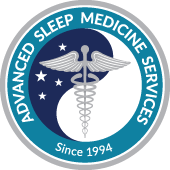A sleep study, whether performed at-home or in a sleep center, is the most effective way to diagnose many sleep disorders, like sleep apnea.
Learn about the typical requirements for ordering sleep studies.
Talk to your doctor about your sleep issues
You can discuss your sleep issues with your primary care physician, a specialist or even your dentist (here’sour post about which doctors handle sleep problems). You can discuss options for testing and potential therapy. If you prefer to meet with a sleep specialist, you contact your primary care physician to ask for a referral, or contact us here and we’ll put you in touch with a local doctor who specializes in diagnosing and treating sleep disorders.
Order the sleep study
If you and your doctor have determined that you need a sleep study to diagnose or rule out a suspected sleep disorder, it’s time to order. Sleep studies are medical procedures that should be ordered by a physician (most insurances require a prescription or authorization, learn more about common insurance terms and the difference between HMO and PPO coverage here).
Here’s what’s required to process your order:
(1) Completed demographics and insurance information
Most insurance plans cover sleep studies. Be sure to include complete information for faster processing and to ensure insurance coverage (for a full list of our contracted payers, click here).
(2) Clear reasons for testing (including progress notes)
Why are you ordering the sleep study? Reasons for testing must be clear and supported with documentation from a recent office visit. Medicare requires a face-to-face evaluation to discuss sleeping issues no more than 30 days before ordering the sleep study (learn more about Medicare requirements here).
(3) Select the proper study
There are different testing options for diagnosing and ruling out different types of sleep disorders (learn about different types of sleep disorders here). It is crucial that a service is clearly ordered.
The most common sleep studies (we have an expanded list including CPT codes here):
- Polysomnography (PSG)– Basic overnight sleep study to monitor your sleeping and diagnose sleep disorders, like sleep apnea. Can be performed on adults and children.
- Titration– If sleep apnea has already been diagnosed, CPAP will be administered and the pressure is adjusted to reduce or eliminate apnea events (learn about the difference between AHI, RDI and other terms here).
- 50/50 or split night study– For the first portion of the night, your sleep is monitored. If sleep apnea is diagnosed, CPAP will be administered for the remainder of the study.
- Dual night study– The first night is a diagnostic polysomnography. If sleep apnea is diagnosed, the patient will return for a second night dedicated to administering CPAP and adjusting the pressure. A full night for each study may be best for some patients and allows more time for mask fitting and pressure adjustments.
- PSG and MSLT- To rule out or diagnose narcolepsy (learn more about MSLTs here) an overnight study followed by a daytime nap study is required.
- In-home sleep apnea testing (HST)- For adults who are highly likely to have moderate to severe sleep apnea and have no other major health issues such as recent stroke, congestive heart failure, neuromuscular disorders or suspected parasomnias, home sleep testing may be appropriate. HST can only diagnose or rule out sleep apnea and cannot be used in conjunction with oxygen or CPAP therapy. Learn more about the difference between in-home and in-center testing here.
(4) Send your order to the sleep center
You can contact your insurance company to find a contracted provider (learn why it’s best to go with a contracted sleep center and stay in-network here). If you have HMO insurance, your physician will probably have to request authorization. If you have PPO insurance or are paying cash, you can send your order directly to the sleep center. If you’re in Southern CA and would like to complete your sleep study at one of our centers (see a full map here) you can fax your order to (877) 775-3377 or email it to orders@sleepdr.com.
Use this form to order a sleep study:
Other posts you may find interesting:



Comments
Max Jones
Posted on July 24, 2017My son has struggled with sleep apnea, and we want to make sure that is the only sleep disorder he has. I’m glad that you talked about some different studies that are available to rule out or diagnose disorders like sleep apnea, including polysomnography. I’m going to have to see if we can get a few sleep studies done for my son and be sure that we’re going the right direction to treat his apnea disorder!